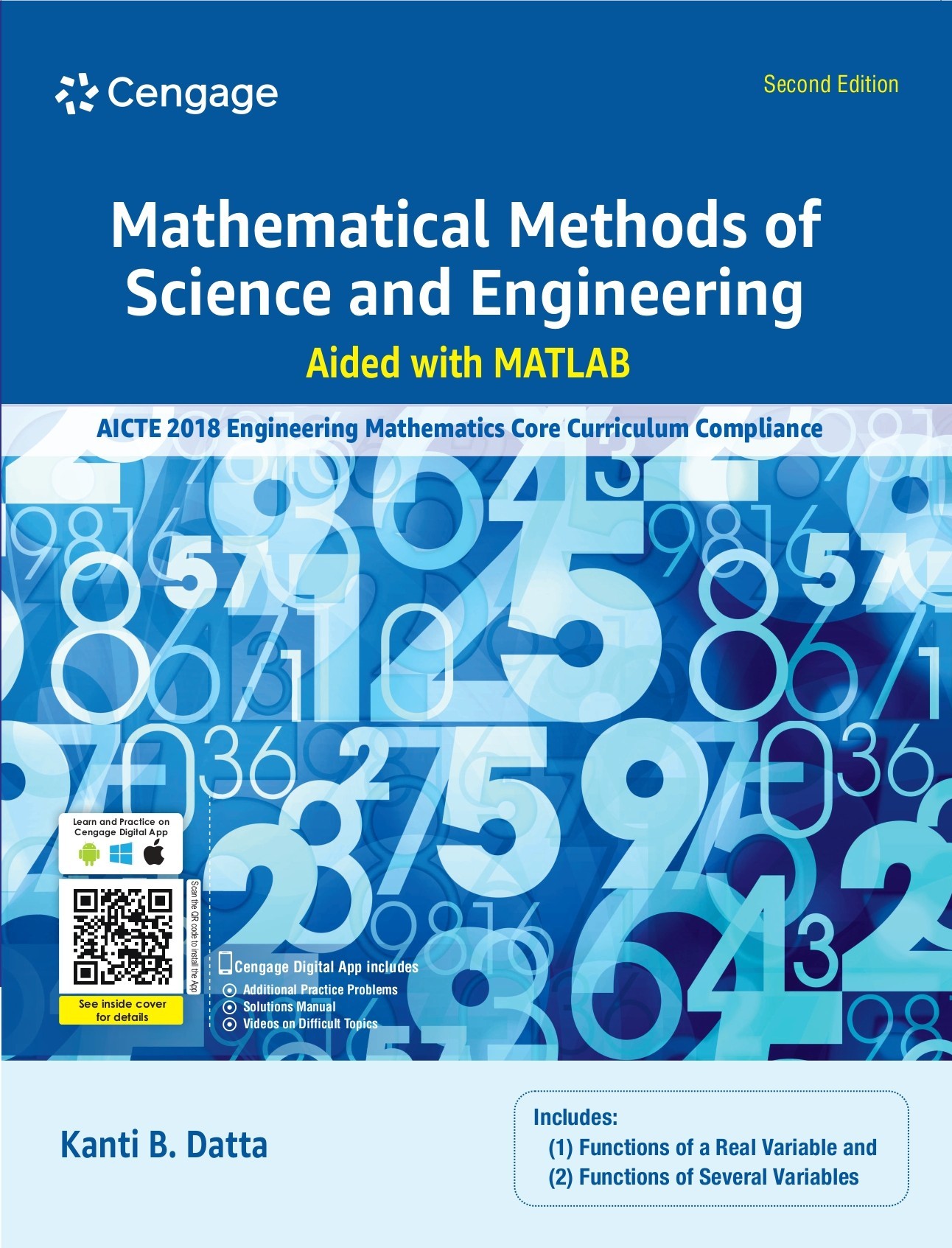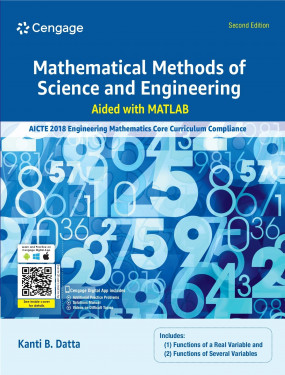This second edition is a major revision based on AICTE 2018 Model Engineering Mathematics Curriculum. Physical scientists and engineers need mathematical tools in their everyday work. This book presents mathematics in a form appropriate for undergraduate courses in a friendly and lucid way. Basic to modeling any physical system, either in science or engineering, a techno-scientist needs a strong foundation of differential equations based on Calculus. The book sets foot in its journey from the mid-17th century Calculus of a single and several variables, invented independently by Isaac Newton and Gottfried Wilhelm Leibniz. Ordinary differential equations and a special class of them: Bessel, Legendre, Laguerre, Chebyshev, and Jacobi; partial and non-linear differential equations with applications to physical problems are central topics in this book. The theory of a complex variable with applications to the evaluation of improper integrals and the solution of potential problems is developed from an elementary to a reasonably advanced level. Numerical methods for interpolation, roots of equations, integrations, ordinary and partial differential equations, evaluation of eigenvalues and eigenvectors are treated in sufficient depth with MATLAB-based algorithms. Improper integrals, special functions, integral equations and calculus of variations are also outlined as they are important topics in science and engineering.
- Based fully on AICTE 2018 Model Engineering Mathematics Curriculum.
- Each topic is developed step-by-step from the basics to an advanced level.
- Topics introduced are supported by examples drawn from the physical and engineering sciences.
- A wealth of worked-out examples and progressively more challenging exercises are incorporated.
- Definitions and theorems are followed by numerical examples to elucidate the concepts contained therein.
- MATLAB is used to reinforce concepts and solve problems that require extensive computation. MATLAB scripts are also provided in many chapters of the book to encourage the readers to develop their own codes for various algorithms discussed in the book.
- Functions of a Real Variable
- Functions of Several Variables
- Matrix and Vector Space
- Linear Transformations, Matrices, and Determinants
- Eigenvalues, Eigenvectors, and Jordan Forms
- Ordinary Differential Equations
- Ordinary Differential Equations of Higher Order
- Complex Numbers
- Functions of a Complex Variable
- Derivatives in a Complex Domain
- Complex Integration
- Infinite Series in a Complex Variable
- Calculus of Residues
- Introduction to Vectors
- Vector Differential Calculus
- Vector Integral Calculus
- Fourier Series
- Fourier Transform
- Laplace Transform
- Applications of Laplace Transform
- z-Transform
- Theory of Probability
- Mathematical Statistics
- Least Squares Approximation
- Improper Integrals and Special Functions
- Series Solutions of Differential Equations
- Bessel Differential Equation
- Legendre Differential Equation
- Laguerre and Hermite Differential Equations
- Partial Differential Equations
- Hyperbolic, Parabolic, and Elliptic PDEs
- Multivalued Functions of a Complex Variable
- Complex Variables and Potential Theory
- Nonlinear Differential Equations
- Integral Equations
- Calculus of Variations
- Numerical Computations: Basics
- Numerical Methods for Differential Equations
- Numerical Linear Algebra
Kanti B. Datta, Ph.D., D.Sc., FNAE, served the Department of Electrical Engineering, Indian Institute of Technology, Kharagpur for 19 years, where he was a professor from 1985 to 2001. Earlier, his yet another major tenure for 17 years had been in the Department of Applied Physics, University of Calcutta. As a Visiting Research Fellow, Prof. Datta visited the Department of Applied Mathematics, Comenius University, Bratislava, Slovakia and Department of Mathematics and Computing Sciences, Eindhoven University of Technology, Holland.








